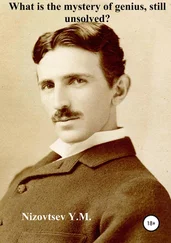Cesare Lombroso - The Man of Genius
Здесь есть возможность читать онлайн «Cesare Lombroso - The Man of Genius» — ознакомительный отрывок электронной книги совершенно бесплатно, а после прочтения отрывка купить полную версию. В некоторых случаях можно слушать аудио, скачать через торрент в формате fb2 и присутствует краткое содержание. Жанр: foreign_antique, foreign_prose, на английском языке. Описание произведения, (предисловие) а так же отзывы посетителей доступны на портале библиотеки ЛибКат.
- Название:The Man of Genius
- Автор:
- Жанр:
- Год:неизвестен
- ISBN:нет данных
- Рейтинг книги:5 / 5. Голосов: 1
-
Избранное:Добавить в избранное
- Отзывы:
-
Ваша оценка:
- 100
- 1
- 2
- 3
- 4
- 5
The Man of Genius: краткое содержание, описание и аннотация
Предлагаем к чтению аннотацию, описание, краткое содержание или предисловие (зависит от того, что написал сам автор книги «The Man of Genius»). Если вы не нашли необходимую информацию о книге — напишите в комментариях, мы постараемся отыскать её.
The Man of Genius — читать онлайн ознакомительный отрывок
Ниже представлен текст книги, разбитый по страницам. Система сохранения места последней прочитанной страницы, позволяет с удобством читать онлайн бесплатно книгу «The Man of Genius», без необходимости каждый раз заново искать на чём Вы остановились. Поставьте закладку, и сможете в любой момент перейти на страницу, на которой закончили чтение.
Интервал:
Закладка:
In this persecution, men of genius have no fiercer or more terrible enemies than the men of academies, who possess the weapons of talent, the stimulus of vanity, and the prestige by preference accorded to them by the vulgar, and by governments which, in large part, consist of the vulgar. There are, indeed, countries in which the ordinary level of intelligence sinks so low that the inhabitants come to hate not only genius, but even talent.
Originality, though usually of an aimless kind, is observed with some frequency among the insane – as we shall see later on – and especially among those inclined to literature. They sometimes reach the divinations of genius: thus Bernardi, at the Florence Asylum in 1529, wished to show the existence of language among apes. 88 88 Delepierre, Histoire Littéraire des fous , Paris, 1860.
In exchange for this fatal gift, both the one and the other have the same ignorance of the necessities of practical life which always seems to them less important than their own dreams, and at the same time they possess the disordered habits which renders this ignorance dangerous.
Fondness for Special Words. – This originality causes men of genius, as well as the insane, to create special words, marked with their own imprint, unintelligible to others, but to which they attach extraordinary significance and importance. Such are the dignità of Vico, the individuità of Carrara, the odio serrato of Alfieri, the albero epogonico of Marzolo, and the immiarsi , the intuarsi , and the entomata of Dante.
CHAPTER III.
Latent Forms of Neurosis and Insanity in Genius
Chorea and Epilepsy – Melancholy – Megalomania — Folie du doute – Alcoholism – Hallucinations – Moral Insanity – Longevity.
IT is now possible to explain the frequency among men of genius, even when not insane, of those forms of neurosis or mental alienation which may be called latent, and which contain the germs and as it were the outlines of these disorders.
Chorea and Epilepsy. – Many men of genius, like the insane, are subject to curious spasmodic and choreic movements. Lenau and Montesquieu left upon the floor of their rooms the signs of the movements by which their feet were convulsively agitated during composition; Buffon, Dr. Johnson, Santeuil, Crébillon, Lombardini, exhibited the most remarkable facial contortions. 89 89 Réveillé-Parise, Physiologie et Hygiène des hommes livrés aux travaux de l’esprit , Paris, 1856.
There was a constant quiver on Thomas Campbell’s thin lips. Chateaubriand was long subject to convulsive movements of the arm. Napoleon suffered from habitual spasm of the right shoulder and of the lips; “My anger,” he said, one day after an altercation with Lowe, “must have been fearful, for I felt the vibration of my calves, which has not happened to me for a long time.” Peter the Great suffered from convulsive movements which horribly distorted his face. Carducci’s face at certain moments, writes Mantegazza, is a veritable hurricane; lightnings dart from his eyes and his muscles tremble. 90 90 Mantegazza, Physiognomy and Expression .
Ampère could only express his thoughts while walking, and when his body was in a state of constant movement. 91 91 Arago, ii. p. 82.
Socrates often danced and jumped in the street without reason, as if by a freak.
Julius Cæsar, Dostoieffsky, Petrarch, Molière, Flaubert, Charles V., Saint Paul, and Handel, appear to have been all subject to attacks of epilepsy. Twice upon the field of battle the epileptic vertigo nearly had a serious influence on Cæsar’s fate. On another occasion, when the Senate had decreed him extraordinary honours, and had gone out to meet him with the consuls and prætors, Cæsar, who at that moment was seated at the tribune, failed to rise, and received the Senators as though they were ordinary citizens. They retired showing signs of discontent, and Cæsar, suddenly returning to himself, immediately went home, took off his clothes and uncovering his neck, exclaimed that he was ready to deliver his throat to any one who wished to cut it. He explained his behaviour to the Senate as due to the malady to which he was subject; he said that those who were affected by it were unable to speak standing, in public, that they soon felt shocks in their limbs, giddiness, and at last completely lost consciousness. 92 92 Plutarch, Life, &c.
Convulsions sometimes hindered Molière from doing any work for a fortnight at a time. Mahomet had visions after an epileptic fit: “An angel appears to me in human form; he speaks to me. Often I hear as it were the sound of cats, of rabbits, of bells: then I suffer much.” After these apparitions he was overcome with sadness and howled like a young camel. Peter the Great and his son by Catherine were both epileptics.
It may be noted here that artistic creation presents the intermittence, the instantaneousness, and very often the sudden absences of mind which characterize epilepsy. Paganini, Mozart, Schiller, and Alfieri, suffered from convulsions. Paganini was even subject to catalepsy. 93 93 Radestock, op. cit.
Pascal from the age of twenty-four had fits which lasted for whole days. Handel had attacks of furious and epileptic rage. Newton and Swift were subject to vertigo, which is related to epilepsy. Richelieu, in a fit, believed he was a horse, and neighed and jumped; afterwards he knew nothing of what had taken place. 94 94 Moreau, op. cit. , p. 523.
Maudsley remarks that epileptics often believe themselves patriarchs and prophets. He thinks that by mistaking their hallucinations for divine revelations they have largely contributed to the foundation of religious beliefs. Anne Lee, who founded the sect of Shakers, was an epileptic: she saw Christ come to her physically and spiritually. The vision which transformed Saint Paul from a persecutor into an apostle seems to have been of the same order. The Siberian Shamans, who profess to have intercourse with spirits, operate in a state of convulsive exaltation, and choose their pupils by preference from among epileptic children.
Melancholy. – The tendency to melancholy is common to the majority of thinkers, and depends on their hyperæsthesia. It is proverbially said that to feel sorrow more than other men constitutes the crown of thorns of genius. Aristotle had remarked that men of genius are of melancholic temperament, and after him Jürgen-Meyer has affirmed the same. “ Tristes philosophi et severi ,” said Varro.
Goethe, the impassible Goethe, confesses that “my character passes from extreme joy to extreme melancholy;” and elsewhere that “every increase of knowledge is an increase of sorrow;” he could not recall that in all his life he had passed more than four pleasant weeks. “I am not made for enjoyment,” wrote Flaubert. 95 95 Correspondance , p. 119, 1887.
Giusti was affected by hypochondria, which reached to delirium; sometimes he thought he had hydrophobia. Corradi has shown 96 96 Memorie dell Istituto Lombardo , 1878.
that all the misfortunes of Leopardi, as well as his philosophy, owe their origin to an exaggerated sensibility, and a hopeless love which he experienced at the age of eighteen. In fact, his philosophy was more or less sombre according as his health was better or worse, until the tendency was transformed into a habit. “Thought,” he wrote, “has long inflicted on me, and still inflicts, such martyrdom as to produce injurious effects, and it will kill me if I do not change my manner of existence.” 97 97 Letter to Giordani, Aug., 1817.
In his poems Leopardi appears the most romantic and philanthropic of men. In his letters, on the other hand, he appears cold, indifferent to his parents, and still more to his native country. From the publications of his host and protector Ranieri 98 98 Sette Anni di Sodalizio.
may be seen how little grateful he was to his friends, and that he was eccentric to the verge of insanity. Desiring death every moment in verse, he took exaggerated pains to cling to life, exposing himself to the sun for hours together, sometimes eating only peaches, at other times only flesh, always in extremes. No one hated the country more than he, who so often sang its praises. He hardly reached it before he wished to return, and stayed with difficulty an entire day. He made day night, and night day. He suspected every one; one day he even suspected that he had been robbed of a box in which he preserved old combs.
Интервал:
Закладка:
Похожие книги на «The Man of Genius»
Представляем Вашему вниманию похожие книги на «The Man of Genius» списком для выбора. Мы отобрали схожую по названию и смыслу литературу в надежде предоставить читателям больше вариантов отыскать новые, интересные, ещё непрочитанные произведения.
Обсуждение, отзывы о книге «The Man of Genius» и просто собственные мнения читателей. Оставьте ваши комментарии, напишите, что Вы думаете о произведении, его смысле или главных героях. Укажите что конкретно понравилось, а что нет, и почему Вы так считаете.












